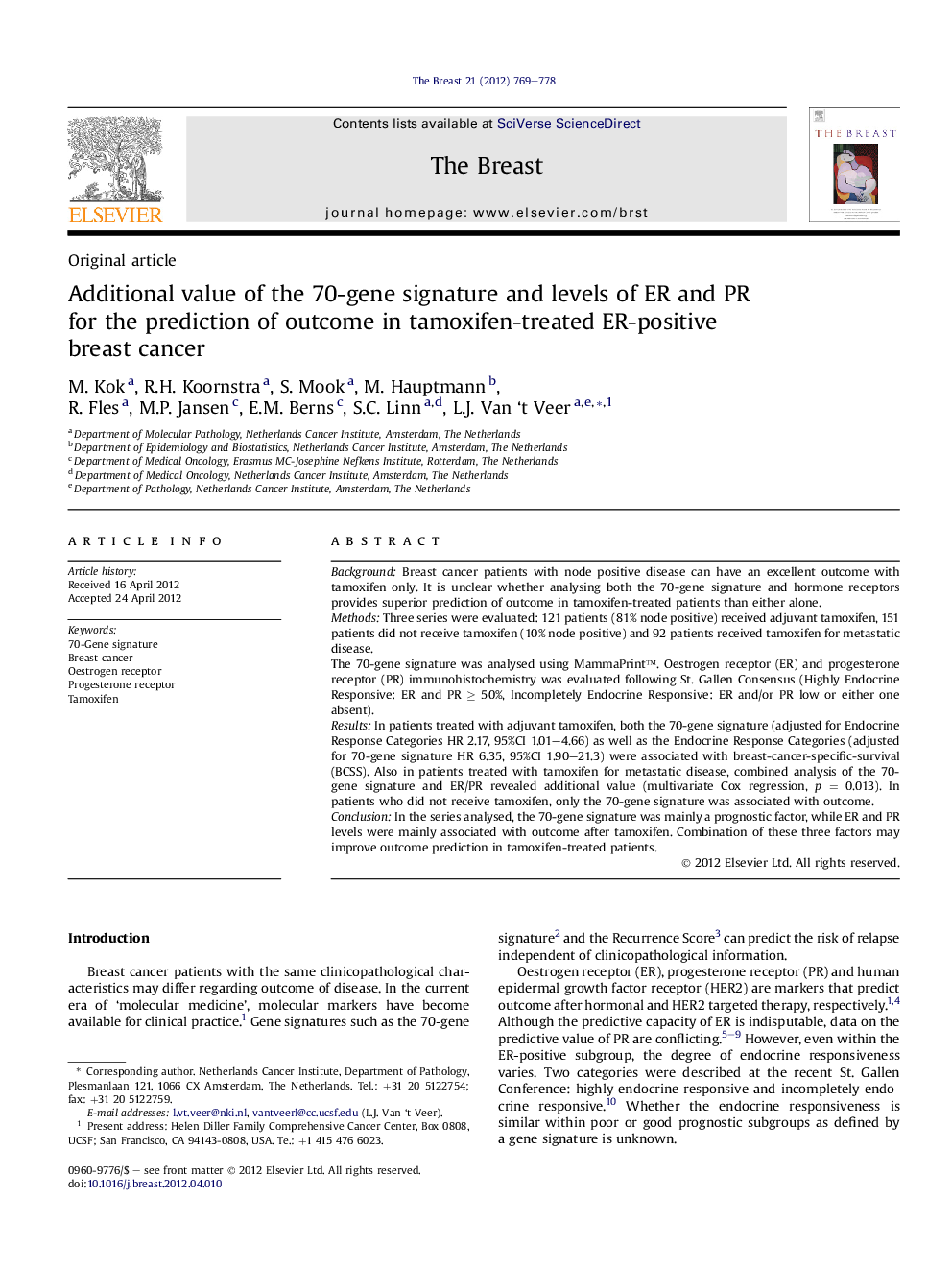| Article ID | Journal | Published Year | Pages | File Type |
|---|---|---|---|---|
| 3908976 | The Breast | 2012 | 10 Pages |
BackgroundBreast cancer patients with node positive disease can have an excellent outcome with tamoxifen only. It is unclear whether analysing both the 70-gene signature and hormone receptors provides superior prediction of outcome in tamoxifen-treated patients than either alone.MethodsThree series were evaluated: 121 patients (81% node positive) received adjuvant tamoxifen, 151 patients did not receive tamoxifen (10% node positive) and 92 patients received tamoxifen for metastatic disease.The 70-gene signature was analysed using MammaPrint™. Oestrogen receptor (ER) and progesterone receptor (PR) immunohistochemistry was evaluated following St. Gallen Consensus (Highly Endocrine Responsive: ER and PR ≥ 50%, Incompletely Endocrine Responsive: ER and/or PR low or either one absent).ResultsIn patients treated with adjuvant tamoxifen, both the 70-gene signature (adjusted for Endocrine Response Categories HR 2.17, 95%CI 1.01–4.66) as well as the Endocrine Response Categories (adjusted for 70-gene signature HR 6.35, 95%CI 1.90–21.3) were associated with breast-cancer-specific-survival (BCSS). Also in patients treated with tamoxifen for metastatic disease, combined analysis of the 70-gene signature and ER/PR revealed additional value (multivariate Cox regression, p = 0.013). In patients who did not receive tamoxifen, only the 70-gene signature was associated with outcome.ConclusionIn the series analysed, the 70-gene signature was mainly a prognostic factor, while ER and PR levels were mainly associated with outcome after tamoxifen. Combination of these three factors may improve outcome prediction in tamoxifen-treated patients.
